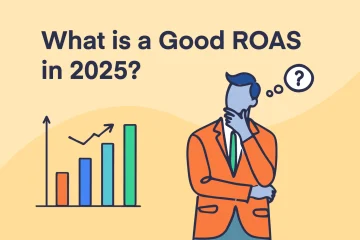Controversies and Realities About Energy Audits & UPS Maintenance in Singapore

Energy efficiency and power reliability have never been more important for Singapore’s businesses. The need to balance sustainability with uninterrupted operations is reshaping how companies manage energy. Two major players lead this transformation: energy audit companies in Singapore and professional UPS maintenance service providers. Yet despite their importance, misconceptions and controversies still surround what they do and whether they’re worth the investment.
Energy Audits Are Just Expensive Reports
One of the biggest debates surrounding energy audit companies in Singapore is their perceived cost versus value. Many businesses assume energy audits are little more than thick reports filled with data. The truth, however, is that a professional energy audit goes far beyond analysing electricity bills. It identifies hidden inefficiencies in cooling systems, lighting, machinery, and power infrastructure, translating technical findings into measurable energy savings.
Critics argue that the benefits take too long to materialise or that audits are “one-off” exercises. In reality, when paired with long-term monitoring and strategic upgrades, energy audits can deliver a return on investment within months. The controversy often arises when companies treat audits as tick-box exercises rather than as ongoing partnerships.
Maintenance Is Optional—Until It Isn’t
Some companies see UPS maintenance as an afterthought, as something to consider only when systems start failing or batteries run out of charge. UPS systems (Uninterruptible Power Supply) protect businesses from outages and surges, but without proper servicing, they can quickly become liabilities rather than safeguards.
In Singapore, the cost of neglecting UPS maintenance service far outweighs the price of preventive care. Faulty capacitors, failing batteries, or unchecked firmware can compromise entire backup systems, leaving businesses vulnerable. Routine testing, load balancing, and calibration are what keep UPS systems reliable when they’re needed most.
Greenwashing or Genuine Sustainability?
Another controversy surrounding energy audit companies in Singapore is whether their work genuinely supports sustainability or helps companies appear environmentally conscious. Sceptics claim that energy audits can be a form of “greenwashing”, or a way for organisations to flaunt eco-friendly credentials without committing to actual change. While some firms may treat it that way, credible audit providers operate with transparency and measurable outcomes.
Reputable energy auditors align their findings with Singapore’s Green Plan 2030, helping businesses reduce emissions, optimise energy use, and qualify for sustainability certifications like BCA Green Mark or ISO 50001. A report without implementation is like diagnosing a problem and refusing treatment. Businesses that view audits as part of a broader efficiency strategy, however, see tangible benefits: lower utility bills, improved ESG ratings, and a smaller carbon footprint.
Are Maintenance Contracts Worth It?
Some businesses hesitate to sign long-term UPS maintenance service contracts because they fear hidden costs or unnecessary add-ons. It’s a fair concern; however, a good service provider operates transparently, offering tailored plans that match a company’s operational scale.
Routine checks help prevent costly equipment failures, extend UPS lifespan, and ensure compliance with manufacturer warranties. Neglecting maintenance often leads to downtime that costs far more than scheduled upkeep ever would. Without proper assessment or periodic review, even the most advanced systems can fall short under pressure.
Energy Efficiency vs. Reliability
Another area of contention lies between energy savings and power reliability. Some critics believe energy audit companies in Singapore push for aggressive energy cuts that compromise system performance. Others claim that UPS maintenance service providers prioritise uptime over efficiency, leading to higher power consumption.
Energy audits aim to optimise systems without sacrificing reliability, while UPS maintenance ensures consistent performance without waste. Together, they support Singapore’s broader push for sustainable yet resilient infrastructure. It’s about choosing between efficiency and reliability, engineering both into the same ecosystem. The key lies in coordination between auditors, engineers, and facility managers who understand the interplay between energy flow and operational demands.
Who Should You Trust?
A lingering controversy surrounds the expertise of energy auditors and UPS technicians. With a growing number of providers entering the market, it’s fair to question who’s qualified and who’s simply selling a service. Reputable energy audit companies in Singapore employ certified engineers who follow international standards like ISO 50002.
Similarly, credible UPS maintenance service providers work with OEM-trained technicians and maintain compliance with industry safety codes. Businesses should always request certifications, performance data, and references. Transparency and technical accountability separate true experts from opportunists.
Beyond the Controversies
Energy audits and UPS maintenance may attract debate, but they remain essential for businesses that value stability, sustainability, and savings. Energy audit companies in Singapore provide the blueprint for smarter energy use, while UPS maintenance service ensures that the blueprint stays functional when power conditions change. Together, they form the foundation of a resilient, efficient, and forward-thinking business environment.
Still on the fence about energy audits or UPS upkeep? Talk to Vallous International, review case studies, and see how small changes can lead to massive results today.

















